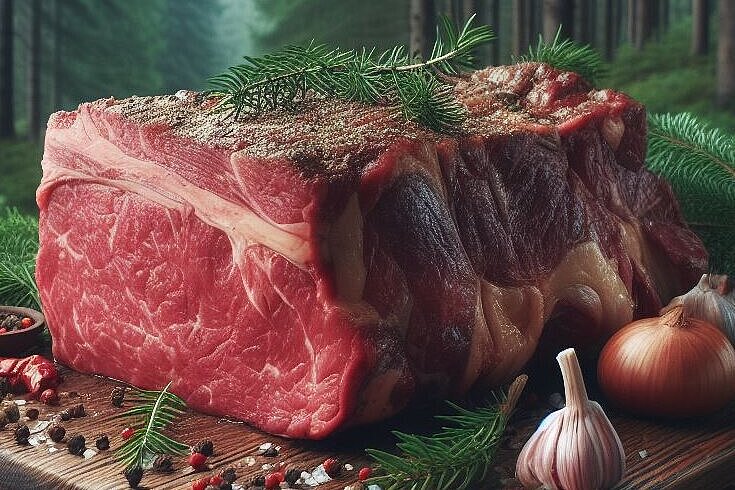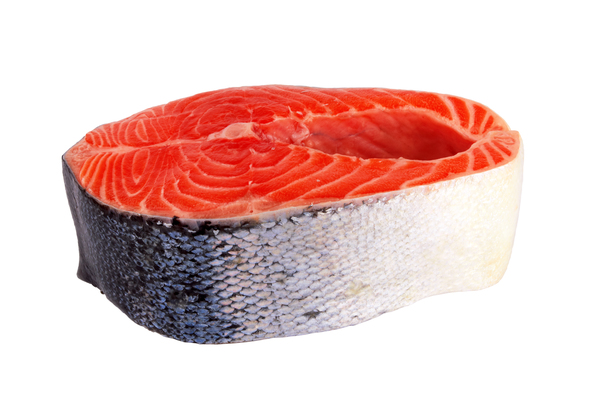Arginine

What is arginine?
Arginine is an amino acid that is involved in the formation of proteins. Proteins are the building blocks of life and fulfill many important functions in your dog's body. Arginine is an essential amino acid, which means that your dog cannot produce it himself and must obtain it from his food.
Why is arginine important for dogs?
Arginine has many positive effects on your dog's health. For example:
- It supports the nitrogen metabolism in the dog's organism. Nitrogen is a waste product of protein breakdown and must be excreted. Arginine helps to remove ammonia from the blood and convert it into urea.
- It promotes intestinal movement (intestinal peristalsis), which improves digestion and prevents constipation.
- It strengthens your dog's immune system and can increase the immune response in case of severe injuries, malnutrition, blood poisoning or after surgery.
- It supports wound healing and tissue regeneration.
How much arginine does your dog need?
The optimal amount of arginine depends on various factors, such as your dog's age, weight, health and activity level. A general recommendation is about 0.5 grams per kilogram of body weight per day. This means, for example:
- A 10 kg dog needs about 5 grams of arginine per day.
- A 20 kg dog needs about 10 grams of arginine per day.
- A 30 kg dog needs about 15 grams of arginine per day.
Which foods contain arginine?
Arginine is found in many animal and plant foods. Meat (especially beef), fish (especially salmon), eggs and dairy products contain particularly high levels. Some nuts such as hazelnuts, Brazil nuts and almonds are also rich in arginine. You can therefore offer your dog a varied diet with different protein sources.
Are there any disadvantages or risks when giving arginine?
Arginine is generally well tolerated by dogs and has no known side effects at normal doses. However, there are a few points to bear in mind:
- If your dog suffers from liver disease or is taking medication that can affect liver metabolism (e.g. steroids), you should consult a vet before giving arginine.
- If your dog suffers from heart disease or is taking blood pressure-lowering medication, you should also consult a vet. This is because arginine can lower blood pressure and thus lead to interactions.
- If your dog is suffering from a viral infection (e.g. herpes virus), you should be careful when giving arginine. This is because some viruses need this amino acid to multiply.
- If your dog is taking part or is due to take part in a competition, you should note that Arginine 4.0 supplements contain natural substances such as turmeric and rosemary, which must be discontinued 48 hours before the competition in accordance with the FN's Anti-Doping and Medication Control Regulations (ADMR). Arginine 4.0 has no performance-enhancing effect on (sports) dogs, but merely supports their health and well-being.
Arginine is an essential amino acid for dogs that has many positive effects on metabolism, digestion, the immune system and wound healing. You can supply your dog with arginine through food or special supplements.
Properties 2
Are you looking for other ingredients with a specific property?
Just click on them to find more.
If you notice any signs of hypersensitivity or poisoning in your dog, you should see your vet immediately. We are not a substitute for a vet, but we try to be as accurate as possible. Every dog reacts differently and we recommend you get a second opinion or consult your vet if in doubt.
Stay healthy and take good care of your four-legged friend!😊
Similar to Arginine
Beef is the meat of various breeds of domestic cattle (Bos taurus) that are bred for meat production. There are many different cuts of beef that are suitable as dog food. These include Muscle meat:...
Salmon are fish that live in cold waters and feed mainly on plankton, crustaceans and smaller fish. There are different types of salmon, for example Atlantic salmon, Pacific salmon or salmon trout....
Eggs are the fertilized or unfertilized egg cells of birds, usually chickens. They consist of a shell, an egg white and an egg yolk. Eggs contain many nutrients such as proteins, fats, vitamins and...
Nuts are the seeds or fruits of various plants, which usually have a hard shell. There are many different types of nuts, such as walnuts, hazelnuts, almonds, cashews, peanuts and pistachios. Nuts...



